0
Policy Brief
Community:
Mar 28, 2023
Family separations and family detention have been used as part of immigration enforcement in the United States. These practices and policies are severely detrimental to child health and wellbeing and can cause lasting harm.
This brief reviews the state of the research on the developmental, psychological, and physical toll of family separation and family detention on children and their caregivers. Grounded in this science, we provide a set of policy recommendations that protect child health and wellbeing.
Authored by: Kelly Edyburn, PhD & Shantel Meek, PhD for the Children's Equity Project
Topics: Child welfare, Early childhood, Health, Immigrants, Legislation & Policy, Mental health, Youth
 Shared by Sandra Ware
Shared by Sandra Ware
Sandra Ware posted a
on Mar 30, 2023
Kelly Edyburn, PhD & Shantel Meek, PhD for the Children's Equity Project
Family separations and family detention have been used as part of immigration enforcement in the United States.
0
Report
Community:
Nov 17, 2022
Homelessness is a traumatic experience with long-term consequences, particularly for infants and toddlers in their most critical stages of development. Yet homelessness among young children is hidden. Lack of shelter, fear of having children removed from parental custody, and restrictive eligibility criteria for housing programs mean that most young children experiencing homelessness stay in places that are not easily identified.
To this end, SchoolHouse Connection and Poverty Solutions at the University of Michigan analyzed data from twenty states that have formed broad-based coalitions to move prenatal-to-3 priorities forward.
This report describes the prevalence of homelessness among infants and toddlers in these twenty states; gaps in access to early learning programs; and recommendations for increasing enrollment and support.
Authored by: School House Connection
Topics: Child welfare, COVID-19, Early childhood, Education, Foster care, Homelessness, Legislation & Policy, Pre-natal, Racial inequalities, Research, Youth
 Shared by Sandra Ware
Shared by Sandra Ware
Sandra Ware posted a
on Nov 17, 2022
Homelessness is a traumatic experience with long-term consequences, particularly for infants and toddlers in their most critical stages of development. Yet homelessness among young children is hidden.
0
Report
Community:
Sep 22, 2022
New research from Urban Institute housing experts explores the characteristics of youth and young adults living in federally assisted housing and the neighborhoods in which they live. Stable housing is essential for young people as they transition from adolescence to adulthood, and public housing agencies often play a critical role in providing them with affordable homes. In 2021 alone, 755,000 youth (people ages 14 to 18) and 513,000 young adults (people ages 19 to 25) received federal housing assistance. Youth and young adult heads of household in federally assisted housing tend to have extremely low incomes. They are less likely to live in metropolitan areas, and 11 percent were experiencing homelessness at the time of their admission into housing. Little information is available about these young people and their experiences accessing stable and affordable housing, and this brief demonstrates that more work must be done to guide service providers, advocates, and policymakers to strengthen supports and services.
If you have questions or would like to speak with the research team, please email me at aelsbree@urban.org.
Authored by: Olivia Fiol, Matthew Gerken, Susan J. Popkin, and Abby Boshart for THE URBAN INSTITUTE
Topics: Child welfare, Housing, Stability, Youth
 Shared by Sandra Ware
Shared by Sandra Ware
Sandra Ware posted a
on Oct 4, 2022
Olivia Fiol, Matthew Gerken, Susan J. Popkin, and Abby Boshart for THE URBAN INSTITUTE
New research from Urban Institute housing experts explores the characteristics of youth and young adults living in federally assisted housing and the neighborhoods in which they live.
0
Interactive
Community:
Jun 29, 2022
In 2020 we launched a dedicated effort to learn more about legal issues surrounding unaccompanied minors experiencing homelessness. This project was intended to guide both organizations’ ongoing work and advocacy and develop resources to help the field better prevent and end homelessness among minors.
This toolkit includes:
• Key issues and challenges for minors experiencing homelessness;
• Strategies and lessons learned from advocacy for state minor consent to services laws (including questions to consider);
• Legal issues and considerations relevant to host homes for minors;
• Working towards equity while serving minors;
• Child welfare and youth homelessness; and
• Additional legal and policy issues.
Authored by: National Network for Youth
Topics: Advocacy, Child welfare, Community development, Education, Foster care, Homelessness, Housing, Legislation & Policy, Racial inequalities, Research, Supportive housing, Sustainability, Youth
 Shared by Karina George
Shared by Karina George
Karina George posted a
on Jun 29, 2022
National Network for Youth
In 2020 we launched a dedicated effort to learn more about legal issues surrounding unaccompanied minors experiencing homelessness.
0
Report
Community:
Jun 29, 2022
Looking largely at the 2020-2021 school year, the report is chock-full of information about how schools apply research-based strategies in a variety of different contexts – from very different school systems across multiple states – to make research translate into positive experiences and outcomes for students and their teachers in three critical areas:
• Instructional work, where math or English-language-arts teams, including instructional coaches, special-education teachers, and English learner/multilingual teachers, work to improve the quality of instruction within classrooms.
• Early Warning and Response strategies, where grade-level or cross-functional teams work to create more supportive school environments, where young people are connected to adults, each other, and the school community.
• Well-Matched Postsecondary initiatives, where school-based teams of counselors, service providers, district and school leaders, teachers, and other staff band together to implement evidence-based strategies and processes that support postsecondary application, enrollment, and persistence.
At its heart, improvement is about learning. Each of these networks study their own work, and consistently and strategically make adaptations to increase their effectiveness as the organizational hub supporting schools. And they demonstrate how lessons need not fade away, but when codified, systematized, and shared, they can deepen our collective capacity to accelerate the field’s learning and growth.
Authored by:
Topics: Advocacy, Attendance, Child welfare, CLPHA, Community development, Education, Grade-level proficiency, Housing, Literacy, Low-income, Partnerships, Place-based, Supportive housing, Sustainability, Youth
 Shared by Karina George
Shared by Karina George
Karina George posted a
on Jun 29, 2022
Looking largely at the 2020-2021 school year, the report is chock-full of information about how schools apply research-based strategies in a variety of different contexts – from very different school systems across multiple states – to make research translate into positive experiences and outcomes f
0
Report
Community:
Jun 27, 2022
We have an abundance of talent that is ready to reimagine early childhood and well-being in America for our youngest children and families, but we do not have an abundance of leadership experiences that nurture, propel, and position them as the dynamic leaders our country urgently needs.
Leadership that reflects the full diversity and genius of our communities, sectors, identities, and lived experiences matters now more than ever. In Toward A More Equitable Tomorrow: A Landscape Analysis of Early Childhood Leadership, we uncover the essentials for future leadership investments that value and center equity—especially racial equity and inclusion—to surface new possibilities and equitable prosperity moving forward. Insights from stakeholders including state and federal cabinet directors, service providers, funders, and parents offer powerful perspectives to guide the future early childhood field, and guide those who seek to accelerate families’ well-being, educational success, and economic mobility.
Ascend at the Aspen Institute is embracing this moment as a renewal, and also as a redoubling of our commitment to remake our systems and our society. This means centering children and families with a focus not simply on eliminating persistent inequities such as poverty, polarization, and racism, but on ensuring pathways to prosperity and well-being.
With support from the Buffett Early Childhood Fund, David and Lucile Packard Foundation, and the Bezos Family Foundation, Ascend undertook a robust landscape analysis of the early childhood field. More than 80 leaders—from research, practice, policy, philanthropy, and families with young children—shared their insights for this report. It was augmented by a review of 20 mission-aligned leadership efforts. Our inquiry was grounded in an intentional focus on racial, economic, and gender equity; respect for the advances made; commitment to innovation; and an open mind to new approaches, possibilities, and power.
Authored by: Ascend at the Aspen Institute
Topics: Advocacy, Asset building, Child welfare, CLPHA, Early childhood, Housing, Legislation & Policy, Racial inequalities, Research, Supportive housing, Sustainability, Youth
 Shared by Karina George
Shared by Karina George
Karina George posted a
on Jun 27, 2022
Ascend at the Aspen Institute
We have an abundance of talent that is ready to reimagine early childhood and well-being in America for our youngest children and families, but we do not have an abundance of leadership experiences that nurture, propel, and position them as the dynamic leaders our country urgently needs.
0
Video
Community:
May 18, 2021
After over a year of remote learning, everything is out-of-school time at this point. With unknowns about vaccinations for children, communities should prepare for uneven plans across communities for summer and fall 2021. This discussion session focuses on capacity: how to support virtual and hybrid learning, how to counter learning loss, supporting parent engagement, supporting staff to support parents, providing adult socio-emotional learning, and providing connection to services. Panelists will share examples from on the ground, toolkits, and other resources, while also allowing time for small group discussion to share challenges and troubleshoot solutions.
Authored by: CLPHA
Topics: Attendance, Child welfare, Community development, Early childhood, Education, Grade-level proficiency, Out-of-school time, School-readiness, Youth
 Shared by Housing Is
Shared by Housing Is
Housing Is posted a
on May 18, 2021
After over a year of remote learning, everything is out-of-school time at this point. With unknowns about vaccinations for children, communities should prepare for uneven plans across communities for summer and fall 2021.
0
Video
Community:
May 18, 2021
Keynote: Michael Bennet (D-Co), Congressional Video Message.
Plenary: Reducing Childhood Poverty.
Following Housing Is' 2019 Summit discussion of reducing childhood poverty and the idea of a university child allowance, this panel will explore the renewed discussion of legislation around a child tax credit and the idea of a universal basic income.
Authored by: CLPHA
Topics: Child welfare, Community development, Housing, Legislation & Policy, Low-income, Racial inequalities, Youth
 Shared by Housing Is
Shared by Housing Is
Housing Is posted a
on May 18, 2021
Keynote: Michael Bennet (D-Co), Congressional Video Message.
Plenary: Reducing Childhood Poverty.
Following Housing Is' 2019 Summit discussion of reducing childhood poverty and the idea of a university child allowance, this panel will explore the renewed discussion of legislation around a c
0
Report
Community: Youth
Dec 1, 2020
420,000.
Based on the new report, "Lost in the Masked Shuffle & Virtual Void: Children and Youth Experiencing Homelessness Amidst the Pandemic" from SchoolHouse Connection and Poverty Solutions at the University of Michigan, that’s how many fewer children and youth experiencing homelessness have been identified and enrolled by schools so far this school year.
According to our data and insights - gathered from educators and homeless liaisons across 49 states - the number of children, youth, and families experiencing homelessness has likely increased due to the economic crisis. Yet, because of COVID-19 challenges in identifying children and youth experiencing homelessness, hundreds of thousands may not be getting the education and support they need - from internet access, to housing, to food, to child care.
What’s more, only 18% of respondents indicated that federal coronavirus relief education funding provided by the CARES Act is being used to meet the needs of students experiencing homelessness.
To break generational cycles of homelessness, we must take swift action to support the increasing number of children, youth, and families in need. Check out our report to learn more and take action. We have included recommendations for Congressional leaders, state and local educational agencies, homeless, housing, food, and other relief agencies, and philanthropic organizations.
Authored by: Poverty Solutions at THE UNIVERSITY OF MICHIGAN & SCHOOLHOUSE CONNECTION
Topics: Attendance, Child welfare, Early childhood, Education, Funding, Health, Homelessness, Low-income, Stability, Youth
 Shared by Housing Is
Shared by Housing Is
Housing Is posted a
on Dec 1, 2020
Poverty Solutions at THE UNIVERSITY OF MICHIGAN & SCHOOLHOUSE CONNECTION
0
News Article
Community: Youth
Feb 1, 2018
Chicago’s troubling homicide rate could be significantly reduced through a massive increase in state spending for Chicago schools. That's just one of the proposals floated Monday by a prominent University of Chicago economist Jens Ludwig. With a substantial commitment, he says homicides could be reduced by nearly 60 percent. Illinois is dead last when it comes to the percentage of education dollars provided by the state to its cities. Ludwig believes adding $1.7 billion dollars would not only bring Illinois up to the national average, but could substantially reduce gun violence as well. Given the social science evidence on the link between high school graduation and gun violence, that would be about a 30 percent decrease in the homicide rates in the city of Chicago for something that has absolutely nothing to do with the city of Chicago policies.
Authored by: FOX 32 CHICAGO
Topics: Child welfare, Community development, Education, Funding, Legislation & Policy, Preventative care, Youth
 Shared by Housing Is
Shared by Housing Is
Housing Is posted a
on Oct 15, 2020
Chicago’s troubling homicide rate could be significantly reduced through a massive increase in state spending for Chicago schools. That's just one of the proposals floated Monday by a prominent University of Chicago economist Jens Ludwig.
0
News Article
Community: Youth
Jun 29, 2017
One Summer Chicago Plus is a jobs program designed to reduce violence and prepare youth living in some of the city’s highest-violence neighborhoods for the labor market. This study was carried out over the summer of 2013 in partnership with the Chicago Department of Family and Support Services. It found that the program, which provided a six-week, minimum-wage job for 25 hours a week, reduced the number of violent-crime arrests for participants by 33 percent over the subsequent year. The One Summer Chicago Plus 2013 study—accompanied by a long-term follow-up of the 2012 program—closely examines the two to three years following the six-week program and finds that the reduction in violent-crime arrests is not driven simply by keeping participants off the streets during the summer. In fact, the decline in violence remains significant when the summer is ignored entirely.
Researchers did find, however, that the program had no significant impacts on schooling outcomes or engagement, nor did it have a positive impact on formal labor sector employment for all of the participants after the fact. The authors do note that it is possible that significant labor market effects will develop past the three-year window examined in the study.
Authored by: UNIVERSITY OF CHICAGO URBAN LABS
Topics: Child welfare, Community development, Criminal justice, Out-of-school time, Partnerships, Preventative care, Safety, Youth
 Shared by Housing Is
Shared by Housing Is
Housing Is posted a
on Oct 15, 2020
UNIVERSITY OF CHICAGO URBAN LABS
One Summer Chicago Plus is a jobs program designed to reduce violence and prepare youth living in some of the city’s highest-violence neighborhoods for the labor market. This study was carried out over the summer of 2013 in partnership with the Chicago Department of Family and Support Services.
0
News Article
Community:
Jun 12, 2019
About half of the student body at one Ohio elementary school has witnessed drug use at home. Educators spend time every day teaching the children how to cope.
Authored by: Dan Levin for The New York Times
Topics: Child welfare, Early childhood, Education, Health, Substance abuse, Youth
 Shared by Housing Is
Shared by Housing Is
Housing Is posted a
on Jun 13, 2019
Dan Levin for The New York Times
About half of the student body at one Ohio elementary school has witnessed drug use at home. Educators spend time every day teaching the children how to cope.
0
Webinar
Community:
Explains the provisions in the Family First Prevention Services Act related to reducing reliance on congregate care and explores approaches to achieve this goal. This webinar includes a summary of the provisions and examples from agencies that have successfully reduced the number of children in group care. Presenters from child welfare agencies in Connecticut and Oklahoma share strategies used to increase the number of children who safely remain with their families or in the least restrictive, most family-like setting.
Authored by: Child Welfare Capacity Building Collaborative (U.S. Department of Health and Human Services, Administration for Children and Families)
Topics: Child welfare, Foster care, Youth
 Shared by Housing Is
Shared by Housing Is
Housing Is posted a
on May 21, 2019
Child Welfare Capacity Building Collaborative (U.S. Department of Health and Human Services, Administration for Children and Families)
Explains the provisions in the Family First Prevention Services Act related to reducing reliance on congregate care and explores approaches to achieve this goal.
0
Report
Community:
Dec 11, 2018
This report highlights the development and implementation of a mentoring program for college students in foster care in New York City through a strategic partnership that was forged among New York City’s Administration for Children’s Services, Goldman Sachs and Casey Family Programs. The program is designed to expose youth to professional and experiential opportunities through a series of one-on-one meetings and group workshops. Students have the opportunity to become familiar with the Goldman Sachs corporate environment, understand various business sectors and explore the roles and responsibilities of different jobs, as well as receive hands-on support with job applications and interviewing.
Authored by: Casey Family Programs
Topics: Child welfare, Foster care, Partnerships, Research, Workforce development, Youth
 Shared by Housing Is
Shared by Housing Is
Housing Is posted a
on May 21, 2019
This report highlights the development and implementation of a mentoring program for college students in foster care in New York City through a strategic partnership that was forged among New York City’s Administration for Children’s Services, Goldman Sachs and Casey Family Programs.
0
Publication
Community:
Moving Health Care Upstream (MHCU) is based on the belief that health systems can address persistent and costly health inequities by moving “upstream”—beyond the walls of hospitals and clinics and into the communities, collaborating with community-based organizations to address the root causes of disease. The various areas of work within MHCU share a common focus-supporting hospitals and community stakeholders in testing and spreading strategies to move upstream, and sharing “what works” to inform the field and accelerate the upstream movement in the field as a whole. Policy Learning Labs are one example of MHCU’s work to spread knowledge and accelerate action in the field.
Authored by: Nemours, Moving Health Care Upstream, and Change Lab Solutions
Topics: Child welfare, Early childhood, Food insecurity, Green, Health, Housing, Legislation & Policy, Nutrition, Partnerships, Youth
 Shared by Housing Is
Shared by Housing Is
Housing Is posted a
on May 1, 2019
Nemours, Moving Health Care Upstream, and Change Lab Solutions
Moving Health Care Upstream (MHCU) is based on the belief that health systems can address persistent and costly health inequities by moving “upstream”—beyond the walls of hospitals and clinics and into the communities, collaborating with community-based organizations to address the root causes of di
0
Research
Community:
Mar 1, 2019
In 2015, approximately 21,000 youth in the United States became emancipated-commonly referred to as "aged out"-from the foster care system; neither being adopted nor reunified with their family of origin, and were therefore expected to live independent lives. In addition to the youth who aged out, nearly 1,000 youth ran away from foster care. Over the past two decades, studies have consistently indicated a strong association between experiencing homelessness and having prior placement in the foster care system. Youth who age out of foster care are among the populations at the greatest risk of becoming homeless with as many as half of youth experiencing homelessness or housing instability within 18 months of their exit from the foster care system. While precise population statistics on the number of youth experiencing homelessness are difficult to ascertain, it is estimated that approximately 1.24 million will face an episode of homelessness in a given year, representing approximately seven percent of the total population who are homeless.
Authored by: Nicholas Forge, Robin Hartinger-Saunders, Eric Wright, and Erin Ruel for Child Welfare Journal
Topics: Child welfare, Homelessness, Housing, Research, Youth
 Shared by Housing Is
Shared by Housing Is
Housing Is posted a
on Apr 4, 2019
Nicholas Forge, Robin Hartinger-Saunders, Eric Wright, and Erin Ruel for Child Welfare Journal
In 2015, approximately 21,000 youth in the United States became emancipated-commonly referred to as "aged out"-from the foster care system; neither being adopted nor reunified with their family of origin, and were therefore expected to live independent lives.
0
Interactive
Community:
Resources from Ascend at The Aspen Institute
Authored by: Ascend: The Aspen Institute
Topics: Asset building, Child welfare, Dual-generation, Early childhood, Family engagement, Research, Youth
 Shared by Mica O'Brien
Shared by Mica O'Brien
Mica O'Brien posted a
on Apr 2, 2019
Ascend: The Aspen Institute
Resources from Ascend at The Aspen Institute
0
News Article
Community:
Oct 1, 2018
When children get sick from poor living conditions inside their rundown apartments, they miss school. And when 95 percent of students of one school live in the same apartment complex—where evictions are routine and black mold is rampant—classrooms are often left empty.
Authored by: Jamie Hwang for the American Bar Association Journal
Topics: Attendance, Child welfare, Education, Health, Housing, Low-income, Partnerships, Place-based, Youth
 Shared by Housing Is
Shared by Housing Is
Housing Is posted a
on Mar 11, 2019
Jamie Hwang for the American Bar Association Journal
When children get sick from poor living conditions inside their rundown apartments, they miss school. And when 95 percent of students of one school live in the same apartment complex—where evictions are routine and black mold is rampant—classrooms are often left empty.
0
Research
Community:
Mar 8, 2019
The number of kids enrolled in Medicaid and the Children’s Health Insurance Program (CHIP) — two government health plans for the poor — fell by nearly 600,000 in the first 11 months of 2018, a precipitous drop that has puzzled and alarmed many health policy analysts, while several states say it reflects the good news of an improving economy.
Authored by: Michael Ollove for The Pew Charitable Trusts
Topics: Affordable Care Act, Child welfare, Early childhood, Health, Legislation & Policy, Low-income, Medicaid / Medicare, Research, Youth
 Shared by Housing Is
Shared by Housing Is
Housing Is posted a
on Mar 8, 2019
Michael Ollove for The Pew Charitable Trusts
The number of kids enrolled in Medicaid and the Children’s Health Insurance Program (CHIP) — two government health plans for the poor — fell by nearly 600,000 in the first 11 months of 2018, a precipitous drop that has puzzled and alarmed many health policy analysts, while several states say it refl
0
Publication
Community:
Education Leads Home’s State Partnerships on Student Homelessness Project brings together policymakers and practitioners from with the goal of overcoming child and youth homelessness through education. Through the partnership, each state is committed to researching and implementing replicable best practices that address the most urgent needs of their unique homeless student populations. The State Partnerships on Student Homelessness Project is a nonpartisan effort to develop best practices that can be replicated by communities and states nationwide. In its inaugural year of the project, Education Leads Home (ELH) awarded six states – California, Kentucky, Hawaii, Nevada, Oregon, and Washington – small grants through a competitive process. ELH will provide ongoing technical assistance.
Authored by: Education Leads Home
Topics: Child welfare, Education, Funding, Homelessness, Housing, Low-income, Partnerships, Youth
 Shared by Housing Is
Shared by Housing Is
Housing Is posted a
on Mar 5, 2019
Education Leads Home’s State Partnerships on Student Homelessness Project brings together policymakers and practitioners from with the goal of overcoming child and youth homelessness through education.
0
Publication
Community:
Feb 25, 2019
The 2019 state legislative season is in full swing, and SchoolHouse Connection is hard at work on 12 bills in 7 states (IN, KY, ME, NV, TN, TX, UT). We’re also supporting legislative advocates in 4 additional states (AZ, CA, MD, WA), and anticipate additional bills to be filed in LA, MO, NJ, and NC.
Authored by: SchoolHouse Connection
Topics: Child welfare, Education, Funding, Homelessness, Housing, Legislation & Policy, Low-income, Youth
 Shared by Housing Is
Shared by Housing Is
Housing Is posted a
on Feb 28, 2019
The 2019 state legislative season is in full swing, and SchoolHouse Connection is hard at work on 12 bills in 7 states (IN, KY, ME, NV, TN, TX, UT). We’re also supporting legislative advocates in 4 additional states (AZ, CA, MD, WA), and anticipate additional bills to be filed in LA, MO, NJ, and NC.
0
Report
Community:
Welcome to the Food Research & Action Center’s winter issue of ResearchWire. This quarterly newsletter focuses on the latest research, reports, and resources from government agencies, academic researchers, think tanks, and elsewhere at the intersection of food insecurity, poverty, the federal nutrition programs, and health.
Authored by: Food Research & Action Center (FRAC)
Topics: Child welfare, Food insecurity, Funding, Health, Legislation & Policy, Low-income, Nutrition, Research, Youth
 Shared by Mica O'Brien
Shared by Mica O'Brien
Mica O'Brien posted a
on Feb 28, 2019
Food Research & Action Center (FRAC)
Welcome to the Food Research & Action Center’s winter issue of ResearchWire.
0
News Article
Community:
Feb 21, 2019
Homelessness among students enrolled in schools from kindergarten through 12th grade has increased 70 percent over the last decade.
Authored by: Lauren Camera for U.S. News and World Report
Topics: Child welfare, Education, Homelessness, Housing, Research, Youth
 Shared by Housing Is
Shared by Housing Is
Housing Is posted a
on Feb 25, 2019
Lauren Camera for U.S. News and World Report
Homelessness among students enrolled in schools from kindergarten through 12th grade has increased 70 percent over the last decade.
0
Podcast
Community:
Feb 14, 2019
John King served in President Barack Obama’s cabinet as the 10th U.S. Secretary of Education. Secretary King is one of the most prominent voices on the connections between housing policy and education policy, particularly with respect to pervasive socioeconomic and racial segregation. We sat down with Secretary King in Los Angeles to discuss the state of modern-day school and housing segregation, why he prioritized integration while in office, promising practices on both the education and housing fronts, and why education advocates must also be housing advocates.
“As citizens, we need to be engaged on the issues that affect the kids and families that we serve,” said Secretary King. “We have to be engaged on housing…We have a responsibility as educators to be engaged across a range of issues.”
Authored by: Opportunity Starts at Home
Topics: Child welfare, Education, Homelessness, Housing, Legislation & Policy, Low-income, Partnerships, Youth
 Shared by Mica O'Brien
Shared by Mica O'Brien
Mica O'Brien posted a
on Feb 19, 2019
Opportunity Starts at Home
John King served in President Barack Obama’s cabinet as the 10th U.S. Secretary of Education. Secretary King is one of the most prominent voices on the connections between housing policy and education policy, particularly with respect to pervasive socioeconomic and racial segregation.
0
Interactive
Community:
More tan 1.3 million homeless students K-12 have been identified in America's public schools.
Authored by: SchoolHouse Connection, Civic Enterprises, America's Promise Alliance, and Institute for Children, Poverty and Homelessness
Topics: Child welfare, Education, Homelessness, Housing, Legislation & Policy, Low-income, Youth
 Shared by Mica O'Brien
Shared by Mica O'Brien
Mica O'Brien posted a
on Feb 14, 2019
SchoolHouse Connection, Civic Enterprises, America's Promise Alliance, and Institute for Children, Poverty and Homelessness
More tan 1.3 million homeless students K-12 have been identified in America's public schools.

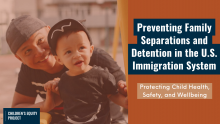
 Shared by Sandra Ware
on Mar 30, 2023
Shared by Sandra Ware
on Mar 30, 2023

 Shared by Sandra Ware
on Nov 17, 2022
Shared by Sandra Ware
on Nov 17, 2022
 Shared by Sandra Ware
on Oct 4, 2022
Shared by Sandra Ware
on Oct 4, 2022
 Shared by Karina George
on Jun 29, 2022
Shared by Karina George
on Jun 29, 2022
 Shared by Karina George
on Jun 29, 2022
Shared by Karina George
on Jun 29, 2022
 Shared by Karina George
on Jun 27, 2022
Shared by Karina George
on Jun 27, 2022
 Shared by Housing Is
on May 18, 2021
Shared by Housing Is
on May 18, 2021
 Shared by Housing Is
on May 18, 2021
Shared by Housing Is
on May 18, 2021
 Shared by Housing Is
on Dec 1, 2020
Shared by Housing Is
on Dec 1, 2020
 Shared by Housing Is
on Oct 15, 2020
Shared by Housing Is
on Oct 15, 2020
 Shared by Housing Is
on Oct 15, 2020
Shared by Housing Is
on Oct 15, 2020
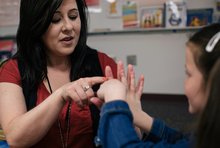
 Shared by Housing Is
on Jun 13, 2019
Shared by Housing Is
on Jun 13, 2019
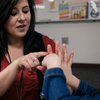
 Shared by Housing Is
on May 21, 2019
Shared by Housing Is
on May 21, 2019
 Shared by Housing Is
on May 21, 2019
Shared by Housing Is
on May 21, 2019
 Shared by Housing Is
on May 1, 2019
Shared by Housing Is
on May 1, 2019
 Shared by Housing Is
on Apr 4, 2019
Shared by Housing Is
on Apr 4, 2019
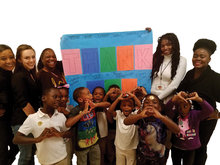
 Shared by Housing Is
on Mar 11, 2019
Shared by Housing Is
on Mar 11, 2019
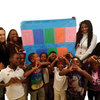

 Shared by Housing Is
on Mar 8, 2019
Shared by Housing Is
on Mar 8, 2019
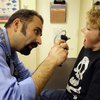

 Shared by Housing Is
on Mar 5, 2019
Shared by Housing Is
on Mar 5, 2019

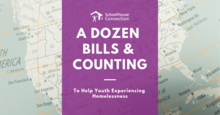
 Shared by Housing Is
on Feb 28, 2019
Shared by Housing Is
on Feb 28, 2019
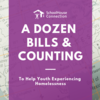
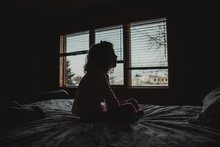
 Shared by Housing Is
on Feb 25, 2019
Shared by Housing Is
on Feb 25, 2019
